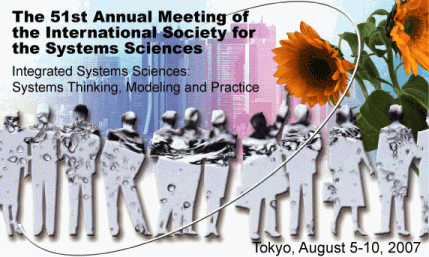Entropy and emergence in organizational systems under a turbulent environment
Keywords:
entropic, homeostatic, and morphogenetic equilibrium, collapse, emergence, cycle of life.Abstract
System science, studies important systems processes, among of them are elements in the life cycle of organizational systems: entropy and emergence. Entropy, a thermodynamics concept, has become a part of the systems language. It indicates the degree of system disorganization. Entropy can be conceptualized as the progressive loss of the relationships that integrate a system. Collapse is violent and sudden, disgregation of systems structures and processes that occur under turbulent conditions. This process can be modeled with the life cycle metaphor of organizations, which include four stages: birth (design), growth (improvement), maturation (maintenance), and death (obsolescence). The gradual stages of improvement and maintenance occur under stable conditions and the sudden stages of design and obsolescence, occur under turbulent environmental conditions. When organizations systems operate near state of equilibrium stability prevails through an homeostatic process of change. Organizations under turbulent conditions suffer an entropic process, loose their heterogeneity and suffer collapse of their structures and processes. When organizational systems are far from an equilibrium state, they can collapse, or new complex systems may develop.Published
2007-07-31
How to Cite
Tejeida-Padilla, R., Peon-Escalante, I., & Badillo-Piña, I. (2007). Entropy and emergence in organizational systems under a turbulent environment. Proceedings of the 51st Annual Meeting of the ISSS - 2007, Tokyo, Japan, 51(2). Retrieved from https://journals.isss.org/index.php/proceedings51st/article/view/469
Issue
Section
Evolutionary Development

